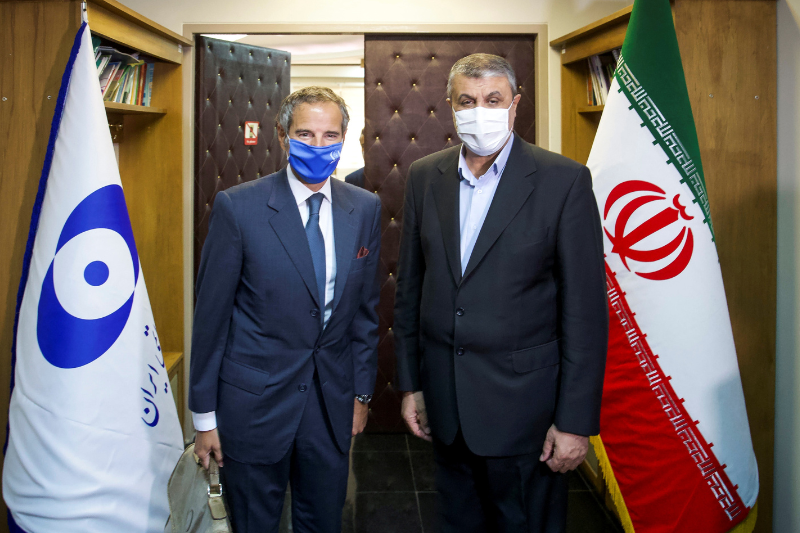
Will the IAEA meeting be fruitful or futile for the Iran nuclear deal?
On Wednesday, the United Nations watchdog meeting ended without any progress on Iran’s nuclear program. The United Kingdom, France, and Germany (E3) delivered a joint statement at the IAEA (International Atomic Energy Agency) Board of Governors meeting, condemning Iran’s lack of transparency with regards to its cooperation with IAEA.
The United Kingdom, France, and Germany urged IAEA to resolve nuclear concerns surrounding Iran’s nuclear program. Will the future IAEA meeting be fruitful or futile for the Iran nuclear deal?
E3 countries on Iran nuclear program
E3 countries said in a joint statement, “Iran has not allowed effective monitoring activities in relation to the production of centrifuges and key components, heavy water and uranium ore concentrate for more than two and a half years.”
The three countries demanded Tehran’s close cooperation with the IAEA. E3 also alleged that Iran carried out uranium enrichment activities in Fordow Fuel Enrichment Plant (FFEP) without resolving nuclear issues.
Germany, France, the US and the UK (the Quad) raised questions about possible undeclared nuclear material at three sites in Iran. The four countries called on Iran to fulfill its legal obligations under its Comprehensive Safeguard Agreement.
IAEA member countries on Iran nuclear program
Around 62 member countries of the IAEA signed a statement, calling the Islamic Republic of Iran to take appropriate steps to address outstanding safeguards issues related to its nuclear program.
The statement, signed by 62 member countries of the IAEA, urged Iran to provide information about the level of enriched uranium at the Isfahan nuclear power plant, Iran’s largest nuclear research complex.
However, Venezuela, People’s Republic of China, Belarus, Nicaragua, Iran, Cuba, Zimbabwe, Russia, and Syria, issued a joint statement to express their support for Iran’s high level of cooperation with the IAEA.
Keep Reading
Iran nuclear deal
The Iran nuclear deal, also known as the Joint Comprehensive Plan of Action (JCPOA), was signed in 2015 between Iran, the United States, the United Kingdom, Russia, France, China, Germany and the European Union.
Under the JCPOA, Iran agreed to curb its nuclear program in exchange for sanctions relief. Iran agreed to reduce its uranium stockpile by 98% to 300 kg (660 lbs) for 15 years. However, in 2018, the US withdrew from the deal. The Iran nuclear deal was on the verge of collapsing after the US unilateral exit from the accord.
Iran also started escalating its nuclear program. In 2021, talks started between major world powers to revive the 2015 Iran nuclear deal. However, the talks were affected due to rivalry between the US and Iran.
The West accused Iran of enriching uranium to 84 percent. However, Iran has repeatedly denied reports that it enriched uranium to 84 percent purity.
IAEA said it detected uranium enrichment at 84 per cent at the nuclear site in Iran. However, Iran’s Atomic Energy Organization, Behrouz Kamalvandi, denied the UN agency report.
Iran also agreed to closely cooperate with the IAEA. However, so far, the IAEA meetings have been futile for the Iran nuclear deal.




